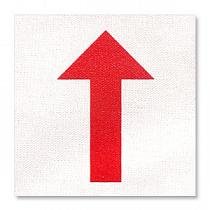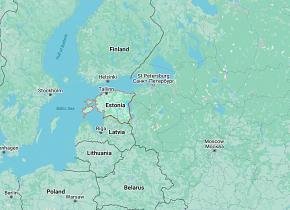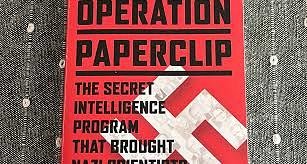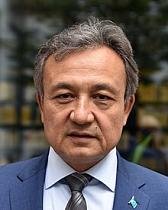America’s Oil Politics: West and Arabs Threaten Iran
Having tasted Islamic blood sumptuously for years since the bogus 9/11 pretext to launch wars against Middle East peoples, the blood-thirsty rogues of USA, UK and other Europeans are looking around for exclusive Muslim prey. Like Libya’s super-fine refined oil, Iran's oil resources are also the envy of USA. And Sunni world is eager to take away the oil market of Iran. With world's fourth largest oil reserves, Iran can be one of richest nations but being bullied by the USA and Arab nations. Iran is showing a slow but steady increase in the past 30 years, Iran's oil production started to decline since 2005 due to lack of investment in developing current and new oil and gas fields. USA has been harming the genuine interests of Iranians. Statistics show, due to US manoeuvrings, a decline in foreign investment since President Mahmoud Ahmadinejad took office in 2005. Further, the mark of sanctions can be seen on Iran's economy, as well as a marked pattern of Iran being forced to look to Asia to make up for lost business from the US and Europe. Dictatorial US psychopaths claim that entire world is afraid of the most powerful USA. Iran’s nuclear program is their own problem. If nuclear operations speed up climate change, USA must end its own nuclear efforts and destroy nuclear arsenals and end nuclear research altogether. Since nuclear programs are meant essentially to manufacture nukes, as all nuclear terror states have been doing for years now, USA claims Iran is also doing the same and wants to destabilize the Shiite nation by racking up that non-issue. Tehran insists its nuclear program is legitimate and is for peaceful purposes. But in order to create a cause for attack, the US and its allies just bluff that Iran is trying to develop a nuclear weapon.   For some time, American officials have been using these levers to curtail financial transactions with Iran. Due to nasty triclomatic efforts by Washington against Iranians, only few people are willing to deal with Iran directly. European banks have received a simple message: they can either trade with Iran, or with the USA, not both. But USA, China and France are still selling petrol to Iran. USA unnecessarily politicized the legitimate Iranian nuclear ambition. In March 2006, the Iran issue was discussed at the UN Security Council, which called for a report by the IAEA to establish Iran's compliance with the terms of the nuclear non-proliferation treaty (NPT). The treaty allows for the use of nuclear technology for peaceful energy purposes, as long as countries can demonstrate that their programs are not being used for the development of nuclear weapons. USA is not a sincere signatory of NPT and proliferates nuclear stuff, but wants Iran to comply.   Iran asserted that its nuclear program was for civilian use permitted by the NPT. On this basis it said it rejected the validity of the notorious Security Council's calls. It claimed that while subscribers to the NPT were being punished, those who had not signed up to the agreement were being rewarded by generous nuclear cooperation agreements. As US pressure grows on Iran over its nuclear program, there is evidence that behind the scenes, the USA has stepped up its push to isolate Tehran economically. In recent weeks a number of countries and companies have cut back on their imports of Iranian crude oil. They include some of Iran's most important trading partners: China, Japan and India. At the same time more companies have stopped supplying Iran with refined petroleum. Because of a shortage of refining capacity, Iran relies on such imports to meet domestic demand. The move was explained in unusually blunt terms by hawkish William Burns, US Under-Secretary of State: "What we've been doing is to try to use every lever that we already have at our disposal to encourage foreign companies, foreign entities to cut their ties with the Iranian economy. The squeeze is on". Western nations recently unveiled new sanctions against Tehran following a UN report that said Iran had carried out tests related to "development of a nuclear device". Further measures being considered to target Iran's oil and financial sectors have brought a furious response from Tehran. As part of next step, an embargo on Iranian oil exports has been considered before but dismissed as it could also drive up global oil prices and harm Western economies, particularly in Europe. It is believed the new measures could cut Tehran off from global energy markets without raising the price of fuel. But the blustering affects the price of oil. Prices retreated Wednesday after an initial spike, but maybe the fluid situation could cause continued instability in 2012 prices. The USA has also been using its alliance with Saudi Arabia to help suggest alternative sources of oil supply for Asian countries that make up some of Iran's most important customers. There's also a wider push to encourage non-American companies to stop doing business with Iran. Sanctions as economic terrorism have been employed as a powerful weapon against the “challengers†by USA. In June 2010, the discredited UNSC approved fresh sanctions against Tehran. The measures prohibit Iran from buying heavy weapons such as attack helicopters and missiles. They also toughen rules on financial transactions with Iranian banks and increase the number of Iranian individuals and companies that are targeted with asset freezes and travel bans. Sanctions were imposed by the US after the seizure of American hostages in the aftermath of the revolution, and the 1980 Iran-Iraq war. In recent years a fresh wave of UN sanctions has attempted to curb Iran's nuclear ambitions. But what effect have these measures actually had on the country and its economy? Use the graphs below to see key economic indicators and major events over the last 30 years. Threatened by Americans, Zionists, Europeans and Arabs with repeat sanctions and war mongering, Iran says it may close a vital oil-trade route if the West imposes more sanctions over its controversial nuclear program. Vice President Mohammad Reza Rahimi warned that "not a drop of oil will pass through the Strait of Hormuz" if sanctions are widened. Iran's navy chief Admiral Habibollah Sayari later said closing the Strait of Hormuz would be "really easy for Iran's armed forces "or as Iranians say, easier than drinking a glass of water". But right now, they don't need to shut it as they have the Sea of Oman under control, and they can control the transit. Iranian President Mahmoud Ahmadinejad reiterates his country does not need atomic bombs. Amid continuing controversy over Teheran's nuclear ambitions, Ahmadinejad warned the US would "regret" any confrontation with Iran. Iran has always insisted that its nuclear program is for civilian purposes. Ahmadinejad also accused the head of the UN's International Atomic Energy Agency (IAEA), Yukiya Amano, of being a puppet of the US. He does not publish a report about America and its allies' nuclear arsenals. He does not open his mouth about the Israeli nukes at all.   Both USA and Israel have been threatening Iran with a “deadly warâ€. Iran has vowed to respond by attacking Israeli and US interests in the region. The enemies will only drop their plots when Iran puts them back in their place. Western critics say that to close the Strait of Hormuz is contrary to the interests of Iran because it would hurt their income, it would unite all of the oil importing countries in the world against them. A closure could temporarily cut off some oil supplies and impact the price of oil worldwide. The threats emerged because European Union ministers are soon to decide on a boycott of Iranian oil, in response to the country's nuclear program. European Union ministers have said that a decision on further economic sanctions — including a boycott of Iranian oil — will be made in the coming weeks. The vast majority of Iran's foreign revenue comes from oil exports. About the writer: Dr. Abdul Ruff, Specialist on State Terrorism; Educationalist; Chancellor-Founder of Centor for International Affairs(CIA); Independent Analyst; Chronicler of Foreign occupations & Freedom movements (Palestine, Kashmir, Iraq, Afghanistan, Pakistan, Xinjiang, Chechnya, etc); Anti-Muslimism and anti-Islamism are more dangerous than "terrorism" Anti-Islamic forces & terrorists are using criminal elements for terrorizing the world and they in disguise are harming genuine interests of ordinary Muslims. Global media today, even in Muslim nations, are controlled by CIA & other anti-Islamic agencies. Former university Teacher. Website http://www.abdulruff.wordpress.com.
Comments
There are 0 comments on this post














